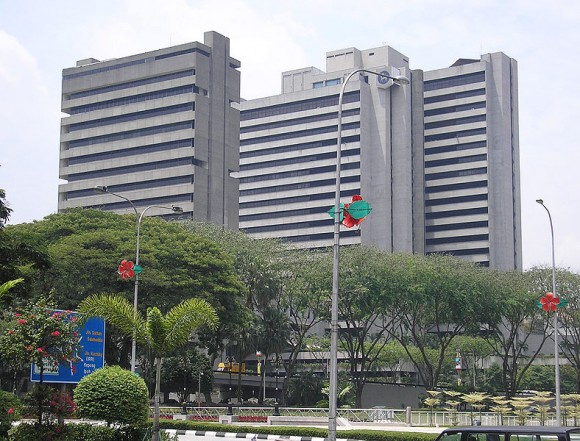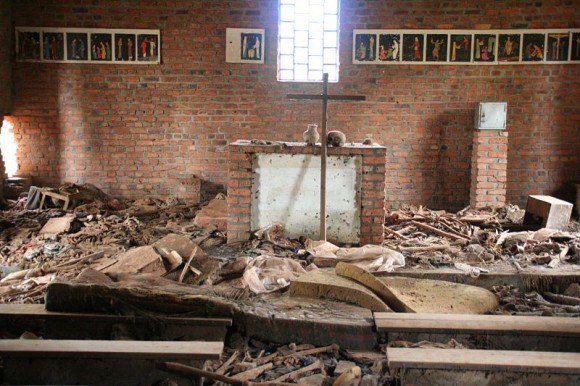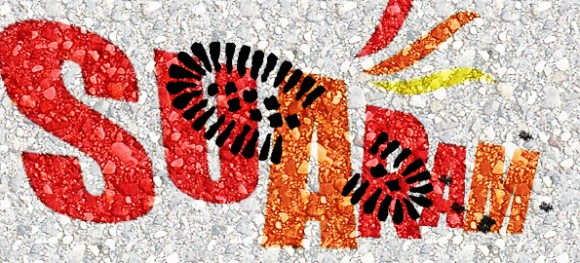MALAYSIA is apparently under grave threat from human rights organisation Suaram. In the last few months, no fewer than six government agencies have been probing Suaram and Suara Inisiatif Sdn Bhd, the company it operates under. Suaram has been accused of a myriad of wrongs — from filing “misleading and confusing accounts” to possible offences under the Anti-Money Laundering and Anti-Terrorism Financing Act 2001 (Amlatfa).
Suaram says it is prepared to be investigated and has been cooperating with investigations. At the same time, it has drawn attention to the timing of the investigations. Is it a coincidence that the government’s scrutiny of Suaram is happening during a Suaram-initiated French inquiry into possible corruption in Malaysia’s purchase of two French Scorpene submarines while Prime Minister Datuk Seri Najib Razak was defence minister?
Besides the obvious accusation of selective prosecution, what else is so wrong about the government’s investigation of Suaram?
Abusing government agencies
Six — yes, six — government agencies have been roped in to investigate Suaram. They are the Companies Commission, Registrar of Societies (ROS), Home Ministry, Bank Negara Malaysia, the Malaysian Communications and Multimedia Commission and the police. These agencies have met to discuss their respective jurisdictions and there has even been talk of setting up a “special task force” to deal with the apparent Suaram threat.
But the alleged crimes revealed so far do not seem to justify the special attention and resources the government is investing in investigating Suaram. Suaram has been accused of filing misleading and confusing accounts, holding activities under Suaram when their company is called Suara Inisiatif Sdn Bhd, and receiving foreign funds. Even if the most malicious of motives is proven against Suaram — and that is far from being proven — this list is hardly nation-threatening stuff.
Yet, Suaram has been accused of plotting to destabilise the government — a serious matter indeed, if true. And Bank Negara has been called in to investigate Suaram under Amlatfa. This law covers investigations into a company handling proceeds from an unlawful activity, defined as a serious offence, whether local or abroad. Additionally, the financing terrorism clauses in Amlatfa require a company’s involvement in financing terrorist activity as defined in the Penal Code.
Unlawful activity? Serious offences? Terrorist activity? As far as I know, Suaram’s main activities include the following:
![]() Compiling lists of persons killed in police shootings and who died in police custody.
Compiling lists of persons killed in police shootings and who died in police custody.
![]() Publishing an annual human rights report.
Publishing an annual human rights report.
![]() Educating the public on their rights in relation to the police.
Educating the public on their rights in relation to the police.
![]() Campaigning to abolish detention without trial.
Campaigning to abolish detention without trial.
![]() And, of course, assisting the Scorpene probe in France.
And, of course, assisting the Scorpene probe in France.

Raising the spectre of money laundering, terrorism and government destabilisation against an organisation with such activities makes the government look paranoid, over-the-top in its reaction, and abusive of its powers. Indeed, the government could also be accused of using red herrings to distract the public from state infractions against human rights and government corruption.
Worse, when the government enlists the aid of quasi-independent state agencies to bully and harass, it damages the credibility of these agencies, and taints the good work that they may otherwise be doing. This, in effect, is what will actually destabilise the government in the long term. As these important institutions lose credibility and stray from the public interest work they are entrusted with, public trust will tank. And guess what happens when public trust in government institutions is lost?
Abusing civil society
By threatening Suaram through the Registrar of Societies (ROS), the government is effectively also threatening Malaysian civil society organisations. Suaram is being investigated for operating as a society without registering under the Societies Act. The ROS says if Suaram had carried out activities under its company name Suara Inisiatif Sdn Bhd and not Suaram, then the Societies Act would not have come into play.
Talk about stretching a technicality. Companies often use variants of their registered names in their day-to-day dealings. Maybank for Malayan Banking Bhd, for example. Or Astro for Astro Malaysia Holdings Bhd. So, then, why not Suaram for Suara Inisiatif Sdn Bhd?
ROS director Datuk Abdul Rahman Othman said the ROS would be taking stricter measures to regulate unregistered societies. One wonders, then, whether companies such as Liberal Banter Sdn Bhd, under which LoyarBurok operates, or CIJ Communications Services Sdn Bhd, under which the Centre for Independent Journalism operates, are next on the list.
The ROS director’s remarks also ignore Malaysians’ constitutional right to freedom of association, which the Societies Act, in fact, excessively curbs. Under the Act, the home minister can unilaterally and in his or her “absolute discretion” declare any society unlawful.
There are also the administrative curbs. Although the ROS director said they have made it easy for societies to register, this has not been the experience of several human rights organisations, including the Malaysian Chapter of Amnesty International. According to Suaram director Dr Kua Kia Soong, the National Human Rights Society took over two years to register even though it had two former prime ministers, Tunku Abdul Rahman and Tun Hussein Onn, as patrons.
Abusing the media
Finally, there is the national media’s complicity in demonising Suaram. “Plot to destabilise the government,” proclaimed New Straits Times’s 21 Sept 2012 front page. “Badan biayai Suaram diragui” was Berita Harian’s. “Suaram mencurigakan,” saidUtusan Malaysia. Most of these articles did not seek Suaram’s views despite the sensational claims being made, and despite the fact that getting all sides of a story is a basic tenet in journalism.
Enlisting the media to serve the government’s short-term ends while simultaneously crippling their role in holding the government accountable can lead to disastrous long-term consequences.

For example, in 1994, an estimated 800,000 Rwandans, mostly Tutsis, were killed in the Rwandan genocide within a matter of weeks. About 200,000 were thought to have been involved in the killing. A Human Rights Watch study on how the violence escalated identifies the Rwandan media as a key instigator of violence. In the newspapers and on radio, Hutu Rwandans were bombarded with the message that their existence was under threat from the Tutsis and it was their duty to defend themselves. Graphic cartoons often accompanied such messages, making it clear what was intended. False information was sometimes broadcast at a time when independent verification was difficult.
As can be seen from the Rwandan experience, it is no small thing for a government to use the media for its own narrow political ends. We can only speculate how differently it would have turned out in Rwanda if the media had taken the government to task for its genocidal messages instead of disseminating them.
And, in Malaysia, imagine how different it would be if our media could hold our government accountable for its misuse of power, instead of feeding disinformation and playing up imagined fears.
Destablising
So who’s really destabilising the government? It is the Barisan Nasional government itself. How so? Its selective prosecution, discrediting and undermining of state agencies, threats to civil society, and corrupting of the media are surefire ways of causing disenchantment and anger with the government.
The focus may now be on Suaram, and its ability to defend itself and survive the current government harassment. But the long-term casualties of the government’s recent actions may not in fact be Suaram. Those who stand to lose in the long term are state agencies, the traditional media, and citizens in our troubled democracy. ![]()
Ding Jo-Ann was formerly a staff at the Centre for Independent Journalism, one of the organisations purportedly plotting to destabilise the government because it receives foreign funding.
Disclosure: The Nut Graph’s editor Jacqueline Ann Surin is one of CIJ’s advisors.
[related-posts]



stewoolf says
Who is destabilising the government?? Do you mean “Who is destabilising the COUNTRY?” What the rakyat fears most, ironically, is the government which destabilises the country so that the ruling regime can continue to reign on the pretext of stabilising the country!!
hclau says
I like this statement, “Those who stand to lose in the long term are state agencies, the traditional media”.
You mean the “traditional media” like Utusan, NST etc, still have any credibility left? These papers happily print outright lies and speculations as “News”.
Yawn, that horse is dead, stop flogging it!
Alwin Lim says
One of Bersih’s demands is ‘Kukuhkan Institusi Awam’ or ‘Strengthen Public Institutions’.
Suaram has been a strong supporter of this cause. Instead of harassing them, they should actually be given a bouquet of flowers to thank them for fighting the cause of strengthening public institutions […]. Who is strengthening whom? Who is destabilising themselves?
Jacqueline Ann Surin says
Of course, NST’s headline of 21 Sept 2012 is accurate. The work that Suaram, CIJ, Malaysiakini etc do, does destabilise the government. It would be destabilising for any government which abuses power, is corrupt and has a murder of a Mongolian woman on its hands to be exposed, questioned and held to account.
So, if the government doesn’t want to be destabilised, it should cease from abusing power, being corrupt, and covering up the real cause of a Mongolian woman’s murder in Malaysia.
Kong Kek Kuat says
@ Jacqueline Ann Surin
Woew…the Mongolian woman, again? Granted, an answer is still wanting, but you might be going a little bit too far at this point in time… yet.
Kong Kek Kuat says
Meanwhile, speaking of abusing the mass media, today´s Sarawak Tribune frontpaged a report on Muhyiddin´s visit to Sarawak. Nevermind what the report is about, just check out how the report begins its paragraph:
“By Adeng Idrus
“LIMBANG: The caring Barisan Nasional (BN) government…”
Beat that.